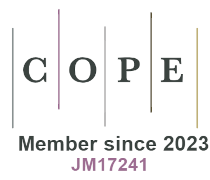A Performance Ranking of LGUs in Macedonia
DOI:
https://doi.org/10.18778/2082-4440.15.07Keywords:
Financial performance, local government performance, local government indexAbstract
Local government performance within public sector performance is coming back because local government is faced with the problem of increased responsibilities under tighter budgets. Therefore, the issues of managing taxpayers’ money more efficiently and effectively still remain a challenge for local government decision makers. In addition, increased social inclusion has created a need for increased accountability and transparency towards local government managers.
This paper aims to facilitate decision makers as well as local government officials to offer a ranking system of local government units (LGUs/municipalities) in Macedonia by analyzing and normalizing some of the main financial indicators that make up the final annual accounts of all LGUs in Macedonia. The output of this work is a local government index showing the best and worst performing municipalities in the country. The provision of one aspect of LG government performance allows all local government stakeholders to have an overview of the budget spent as well as identify some best practices by comparatively identifying the practices of the best performing LGUs. However, the data availability has narrowed the scope of this performance ranking.
We hope that this study will contribute modestly to the existing literature of the performance in the public sector and specifically in that of the local government sector. There is an increasing interest in studies related to public sector performance. However, this interest has been very little in Balkan Countries.
References
Analytica (2007), Evaluation of Public Administration Reforms in Macedonia, Analytica: Public Administration Reform Report No. 5, Skopje.
Google Scholar
Church C. & Rogers M. (2006), Design for Results: Integrating Monitoring and Evaluation in Conflict Transformation Programs, Project: Search for Common Ground, Washington DC.
Google Scholar
DME (2015), Indicator Module, Project: Design, Monitoring and Evaluation for Peacebuilding, http://dmeforpeace.org/sites/default/files/3.9%20Indicators.pdf (30.09.2016).
Google Scholar
GRM (2003), Law on Territorial Organization of the Local Self-Government in the Republic of Macedonia, Government of the Republic of Macedonia, Skopje.
Google Scholar
IOM (2008), Handbook on Performance Indicators for Counter-Trafficing Projects, International Organization for Migration, Washington DC.
Google Scholar
Lennie J., Tacchi J., Koirala B., Wilmore M. & Skuse A. (2011), Equal Access Participatory Monitoring and Evaluation Toolkit, Assessing Communication for Social Change.
Google Scholar
Martin M. & Sauvageot C. (2011), Constructing an indicator system or scorecard for higher education: A practical guide, UNESCO, Paris.
Google Scholar
MDF (2005), MDF Tool: Indicators, Management For Development, www.urbanreproductivehealth.org/sites/mle/files/10%20Indicators.pdf.
Google Scholar
Merkaj, E., Imami, D., Sejdini, M., & Rexhepi, S. (2014), Analyzing factors influencing intergovernmental grants distribution in Western Balkans – the case of Albania and Macedonia, http://shtetiweb.org/wp-content/uploads/2014/06/Project-paper-Intergovernmental-transfer.pdf.
Google Scholar
MISA (2010), Public Administration Reform Strategy 2010–2015, Republic of Macedonia, Macedonian Ministry of Information Society and Adminstration, Skopje.
Google Scholar
MLE (2013), Measuring Success Toolkit: Indicators, The Measurement, Learning & Evaluation Project for the Urban Reproductive Health Initiative, www.urbanreproductivehealth.org/toolkits/measuring-success/indicators.
Google Scholar
OSCE (2011), Decentralization Assessment Report 2006–2011. Organization for Security and Co-operation in Europe, Mission to Skopje, Skopje.
Google Scholar
UNDP (2009), Handbook on Planning, Monitoring and Evaluating for Development Results, United Nations Development Programme, New York NY.
Google Scholar
UNESCO (2011), Systematic Monitoring of Education for All. Training Modules for Asia-Pacific. Module A3: Education Indicators and Data Analysis, UNESCO, Bangkok.
Google Scholar
UNICEF (2003), M&E Training Modules, http://www.ceecis.org/remf/Service3/unicef_eng/.
Google Scholar
DOI: https://doi.org/10.5867/medwave.2003.09.2822
Downloads
Published
How to Cite
Issue
Section
License

This work is licensed under a Creative Commons Attribution-NonCommercial-NoDerivatives 4.0 International License.









